Best conference management software: Top 20 for 2025
Are you a professor, researcher or event organizer who coordinates academic conferences and symposiums on a regular basis? Are you tired of manual processes and looking for the best conference management software to alleviate your team from the burden of inefficient and non-value-added administrative tasks?
We’ve put together a quick guide for the top event management platforms you should explore to improve your event planning process, project management and workflows. You’ll get to explore a wide range of time-saving features, including which event management software offers the following capabilities:
- Event website and event pages builder
- Attendee registration, registration forms, attendee management and other registration tools
- Exhibitor management and functionalities to boost exhibitor sponsorship opportunities
- Event ticketing, ticket sales, and credit card payment processing
- Event marketing tools (marketing campaigns, social media, email marketing, etc.)
- Event experience features, like live polls, QR codes, etc., for better attendee engagement
In addition, we will give you tips for finding the right event management solution and vendor’s customer support, regardless of what type of events you typically host: online or virtual events, hybrid events, in-person events, webinars or even tradeshows.
Top software solutions for event organizers
Organizing a conference, convention or trade show comes with a myriad of challenges: managing registrations, coordinating speakers, creating compelling content, attracting sponsors, and increasing attendee engagement are just some of the critical tasks that require careful planning and execution. These demands can be overwhelming, particularly for event planners whose primary focus lies outside of event management, such as academics or researchers organizing conventions within their field of expertise.
And that is where technology comes in. An entirely new generation of event management platforms can simplify many tasks associated with your event planning process and elevate the quality of all types of events. Several vendors offer event management software solutions tailored specifically to different types of events, making them indispensable for event organizers to save time and focus on what really matters: the event experience itself.
Below, we’ve compiled a list of the best tools in 2025, each excelling in a specific area.
#1: Fourwaves
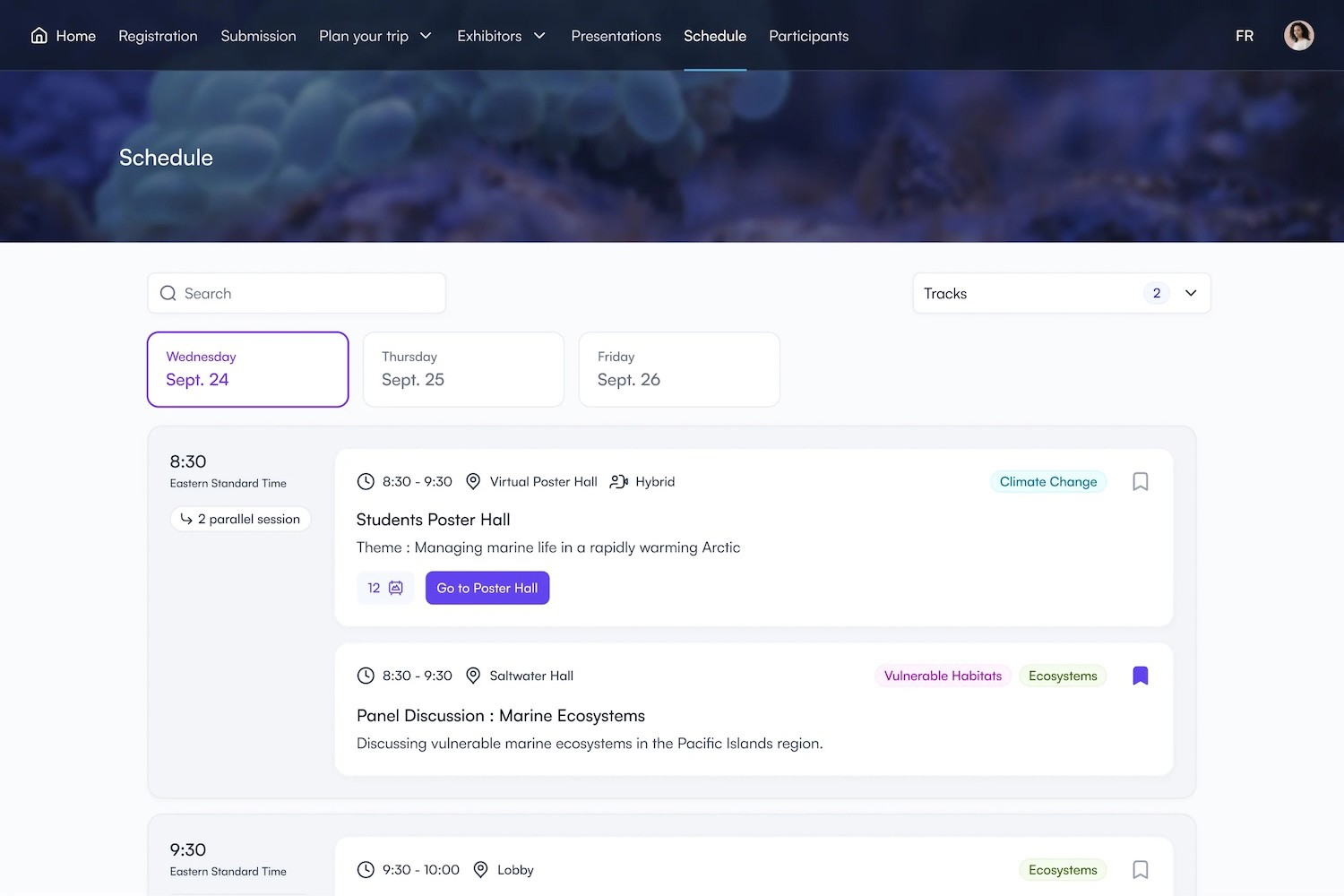
Fourwaves academic conference software stands out as a number-one platform designed specifically for academic conferences and symposiums for universities, associations, societies, and research networks.
It’s an all-in-one tool for end-to-end event management: abstract submissions, peer review management, event website builder, conference program builder, conference event registration and online payments and invoicing, and even poster session coordination. Fourwaves, caters directly to the needs of academic institutions and professional conference organizers (PCOs) that carry out complex event logistics for academic events.
Interactive Fourwaves Demo (submission system)
Try Fourwaves below. To book a live 15-min demo, click here.
#2: Eventify
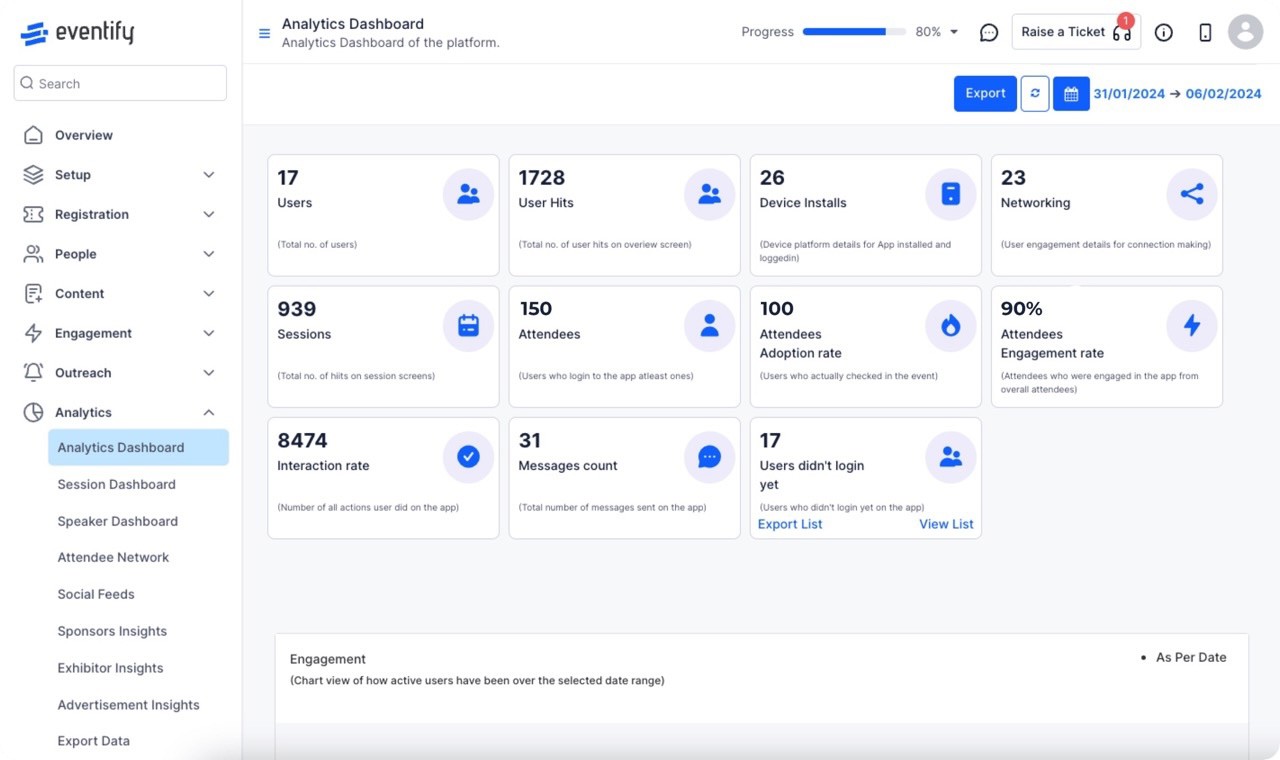
Eventify offers an array of features for organizing and managing multiple events simultaneously.
Its centralized dashboard allows organizers to track registrations, schedule updates, and attendee engagement across multiple conferences. This efficiency makes Eventify particularly useful for organizations or companies with frequent or overlapping events.
#3: Whova
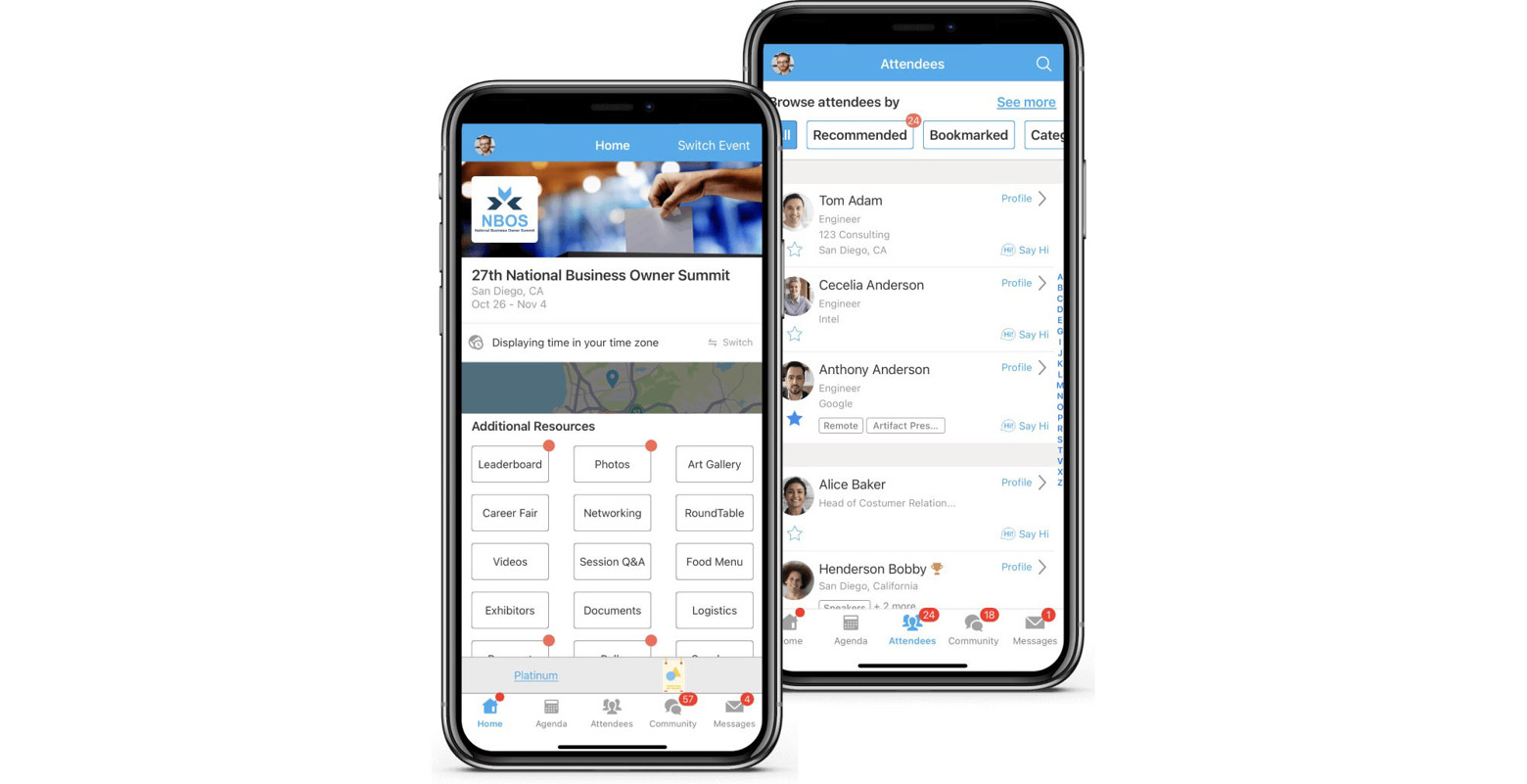
Whova’s software versatility makes it a good event planning solution for hybrid and virtual event management. They particularily shine with their mobile app that has some engaging features for participant networking.
It combines tools for registration and ticketing, abstract management, and building event websites. Whova also provides tools for in-person events, like trade shows: exhibitor operations, lead generation and retrieval, sponsorship coordination and more.
#4: Wild Apricot
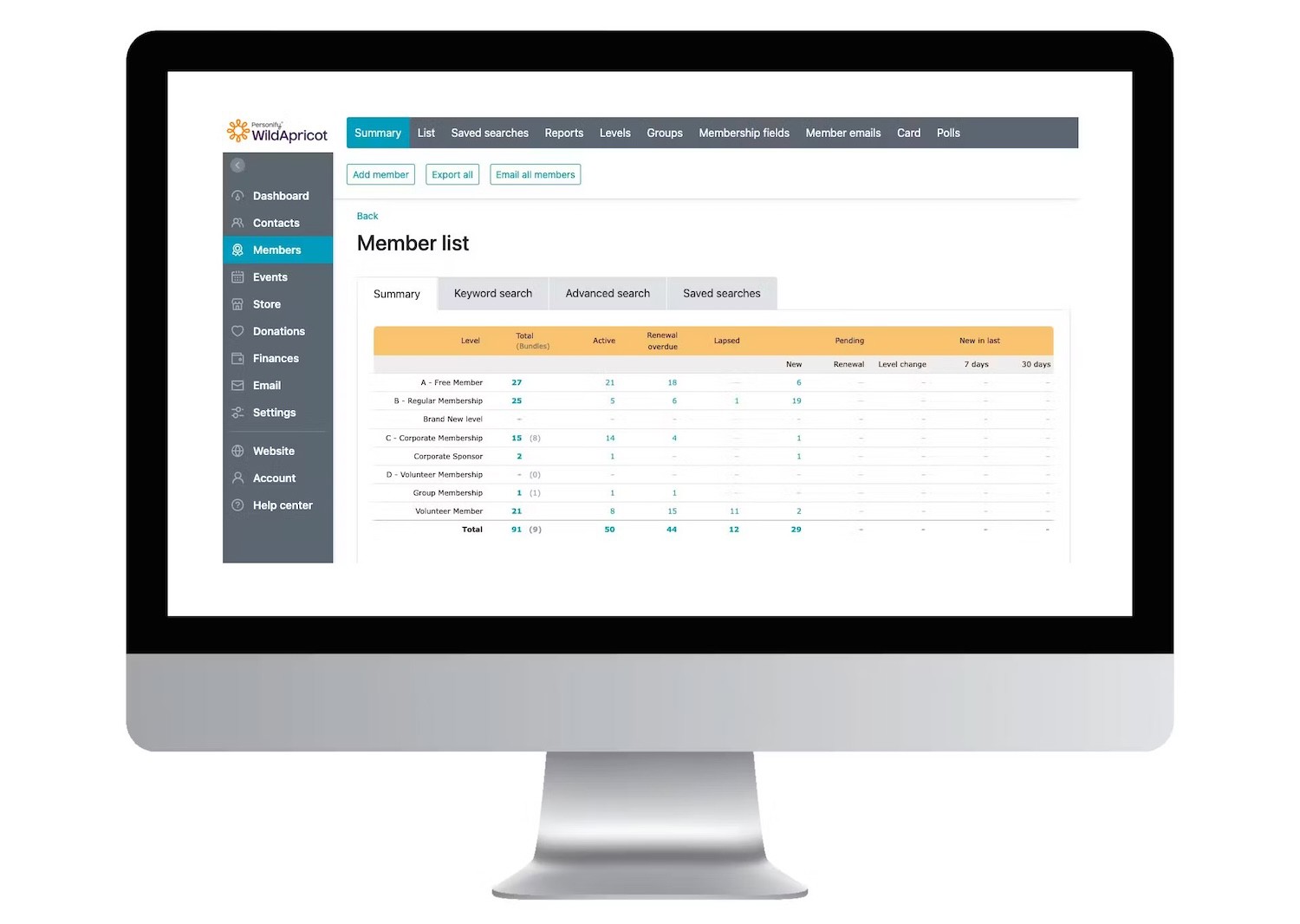
Wild Apricot is an excellent option for membership-based events.
It integrates membership management with event planning, offering features like automatic renewals, member directories, payment processing, and email and contact databases. Wild Apricot helps event organizers build stronger connections with their multi-tiered members and communities.
#5: Eventbrite
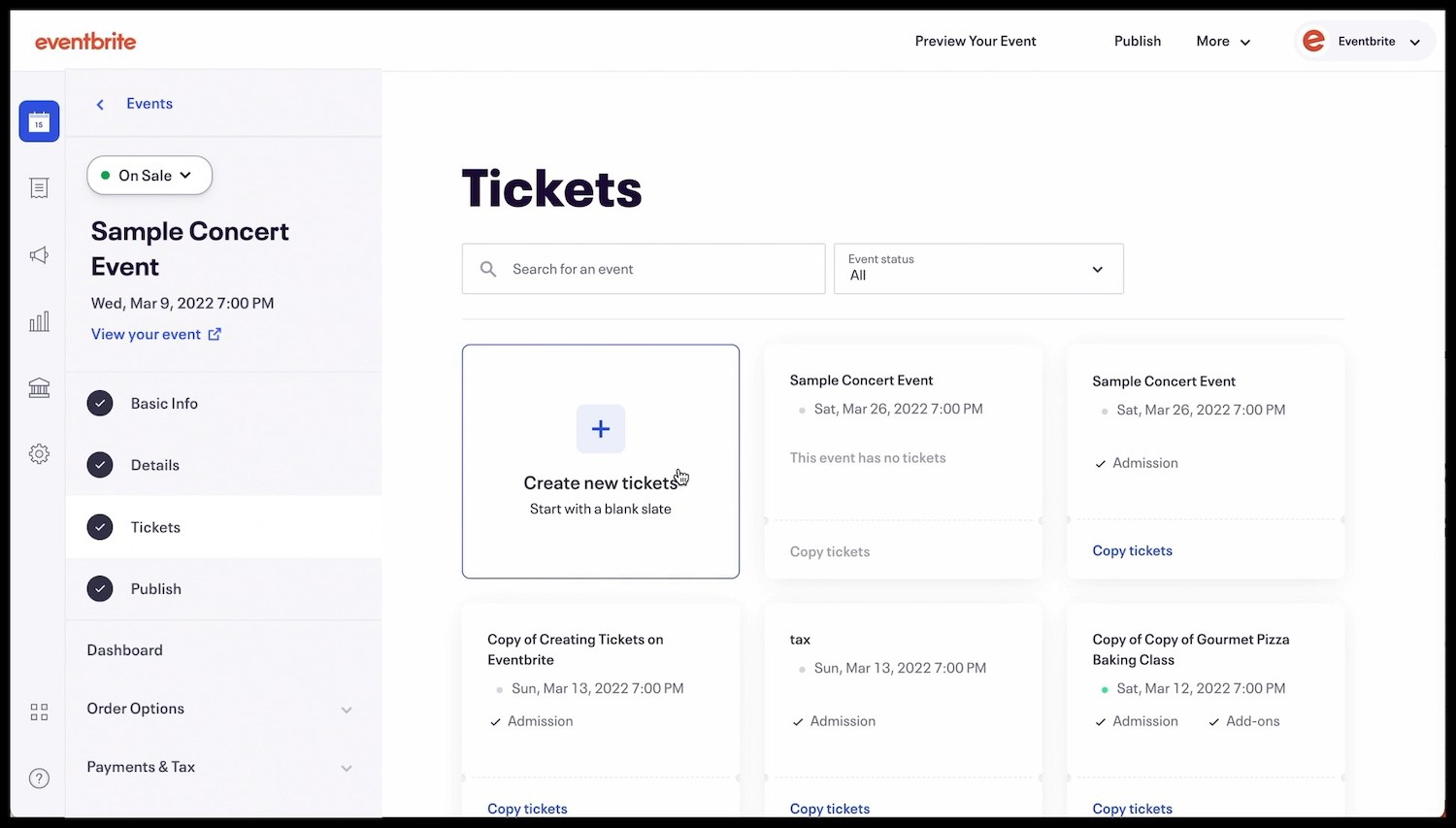
Eventbrite is synonymous with ticket sales and event ticketing.
This event management software offers an advanced ticketing system that allows event planners to create events quickly and promote them effectively through integrations with major social media platforms. Eventbrite’s simplicity and reach make it a go-to choice for B2C companies that require an easy approach to event ticketing and marketing.
#6: Cvent
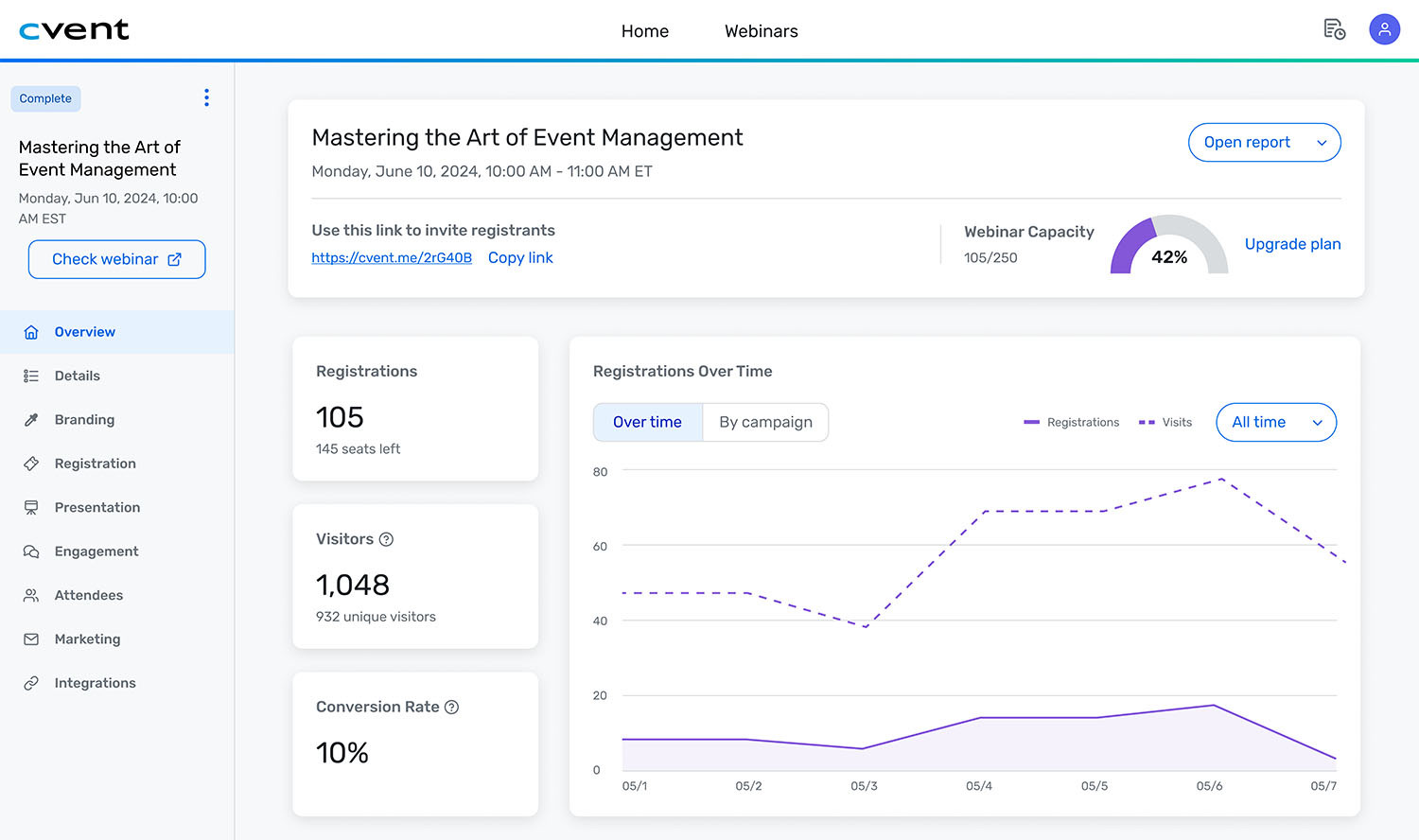
Cvent is a general-purpose event management platform that is especially suitable for corporate events.
From venue sourcing to event diagramming, speaker/exhibitor management, check-ins and badging to trade show lead capture and trade show meetings, Cvent covers every aspect of corporate event planning. Its scalability and reporting capabilities make it ideal for large-scale business gatherings.
#7: Bizzabo
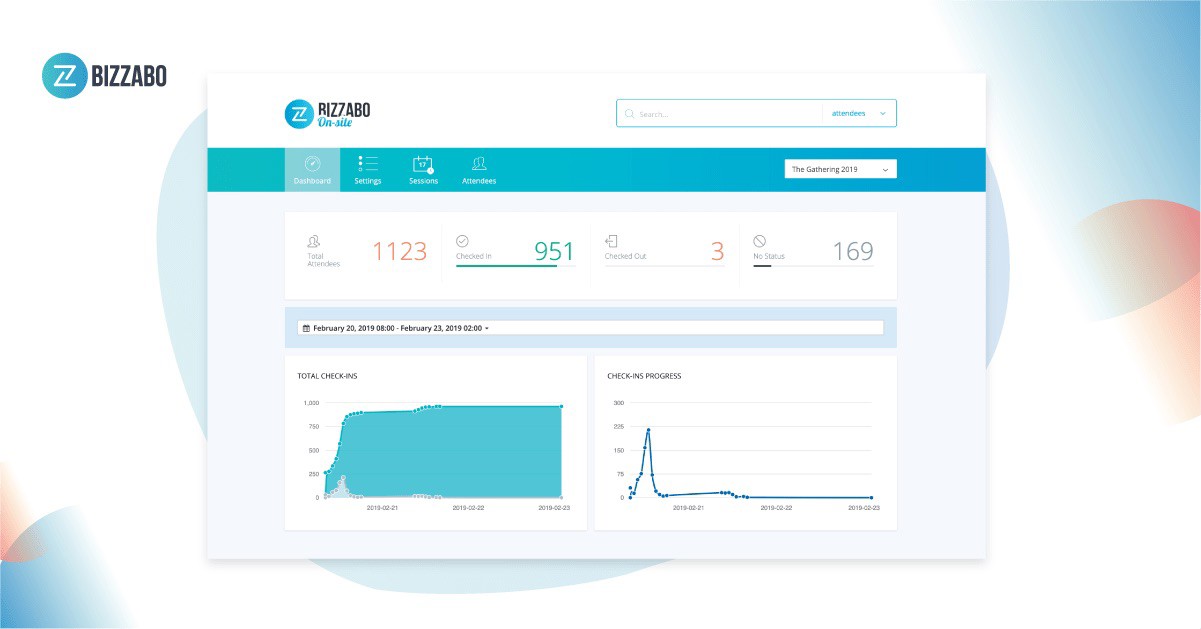
Bizzabo focuses on B2B event marketing and engagement as well as brand amplification.
Its data-driven approach helps organizers optimize campaigns, track ROI, and create targeted promotions. Bizzabo’s emphasis on marketing ensures companies, agencies and non-profits attract the right audiences and achieve maximum impact.
#8: Attendify
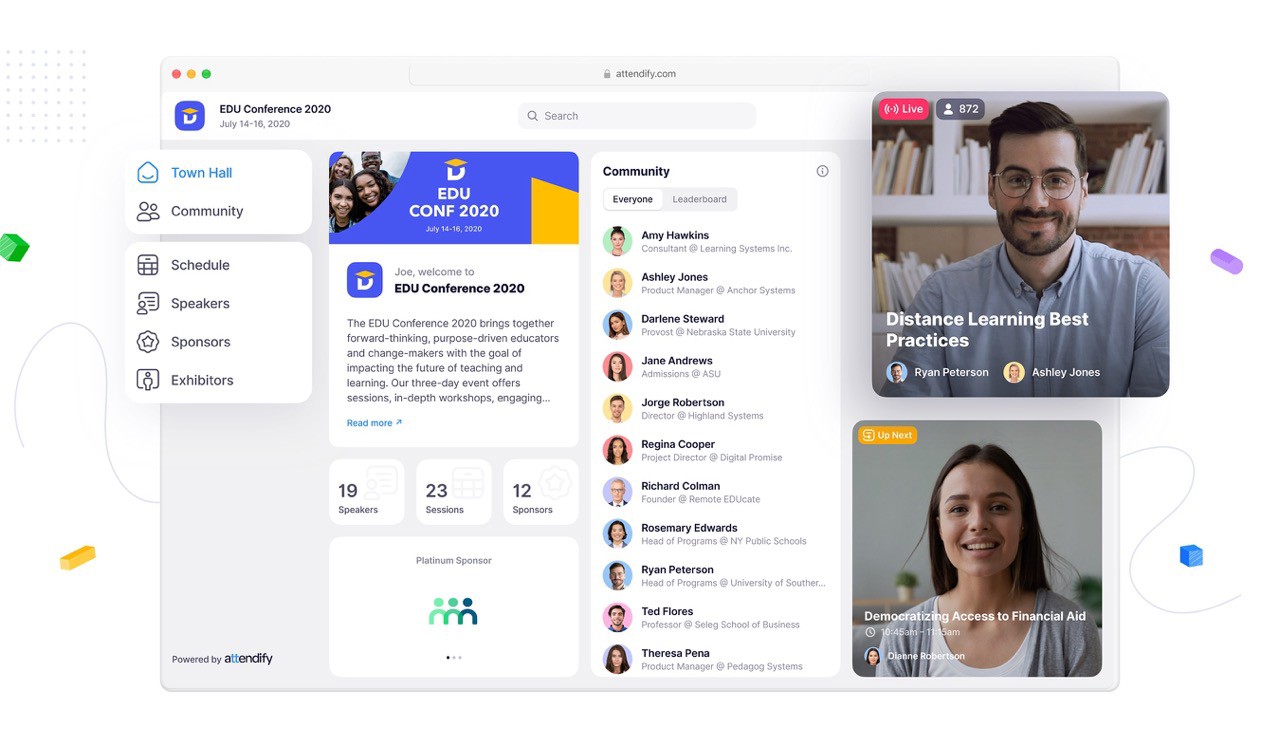
Attendify shines when it comes to fostering attendee engagement and interaction during conferences, especially virtual ones.
Its tracking and analytics features also provide valuable insights into attendee behaviour and participation. Attendify is designed for educational institutions that want to enhance their understanding of participant involvement and optimize event outcomes based on actionable data.
#9: Hopin (now Ring Central Events)
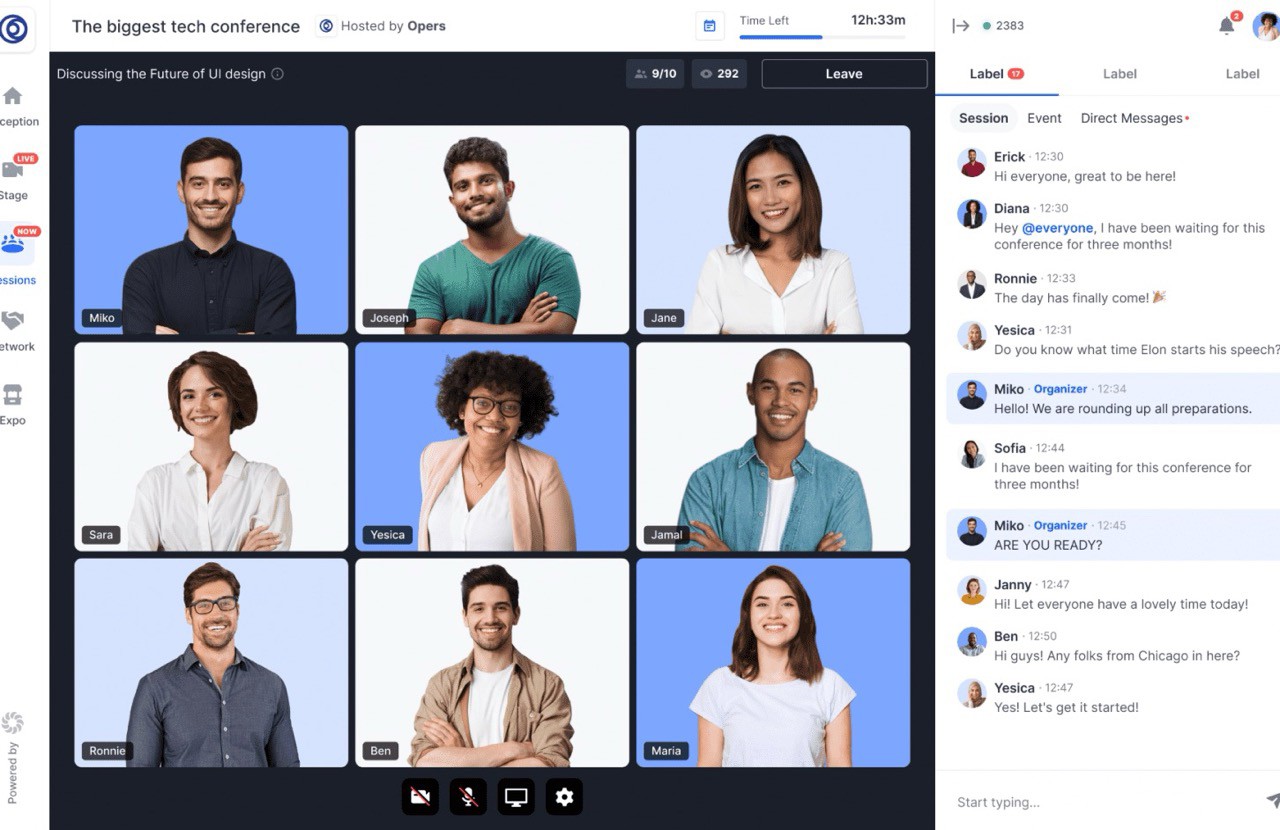
Hopin, now under the new brand name RingCentral Events, is a flexible event management solution that enables small businesses to host events and webinars with both internal and external participants.
RingCentral Events gives users the tools to run AI-powered promotional and social media campaigns as well as manage video meetings, Q&A sessions, highlight clips and live event transcriptions with artificial intelligence capabilities. They particularly shined during the pandemic for virtual events. They also acquired the company StreamYard, which is integrated into RingCentral Events to allow professional streaming.
#10: Socio (now part of Webex)
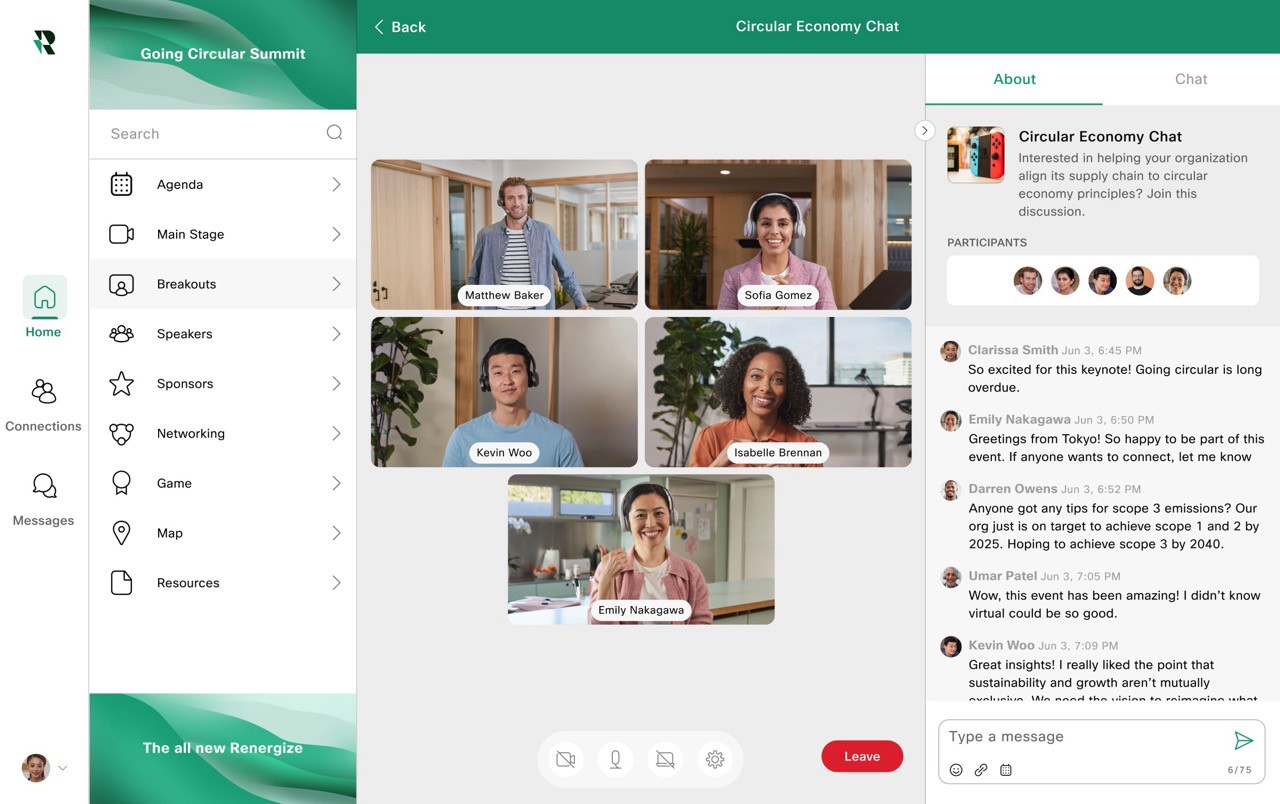
Socio, which is now called Webex Events, is used by event organizers who have a vision of hosting highly interactive in-person, virtual and hybrid events.
With Socio, users can take advantage of its production studio for fully branded live streams, high-performance online event platform, mobile event app, and event check-in, badge production and lead retrieval tools.
#11: Splash
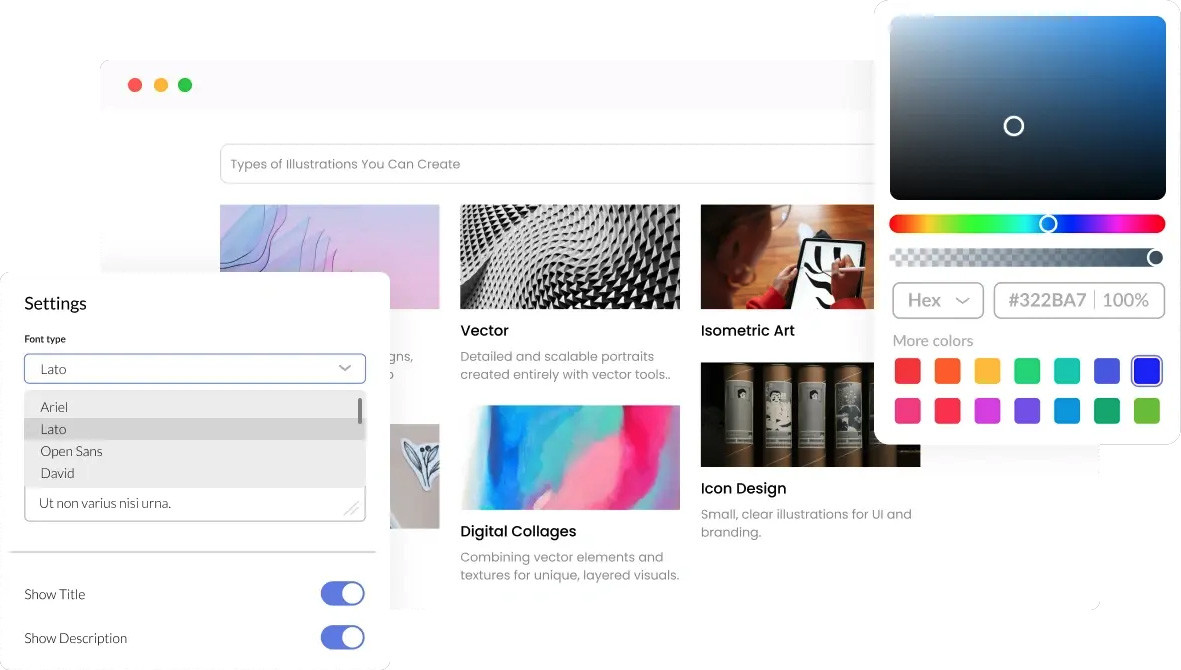
Splash excels in helping organizers create visually stunning, on-brand event experiences.
Marketed as an event management software that drives companies’ sales pipelines, tools ensure consistent branding across all event touch points: event website, ticketing, invites and reminders, virtual venues and more. Splash also provides complete on-site event management features and in-depth reporting.
#12: Accelevents
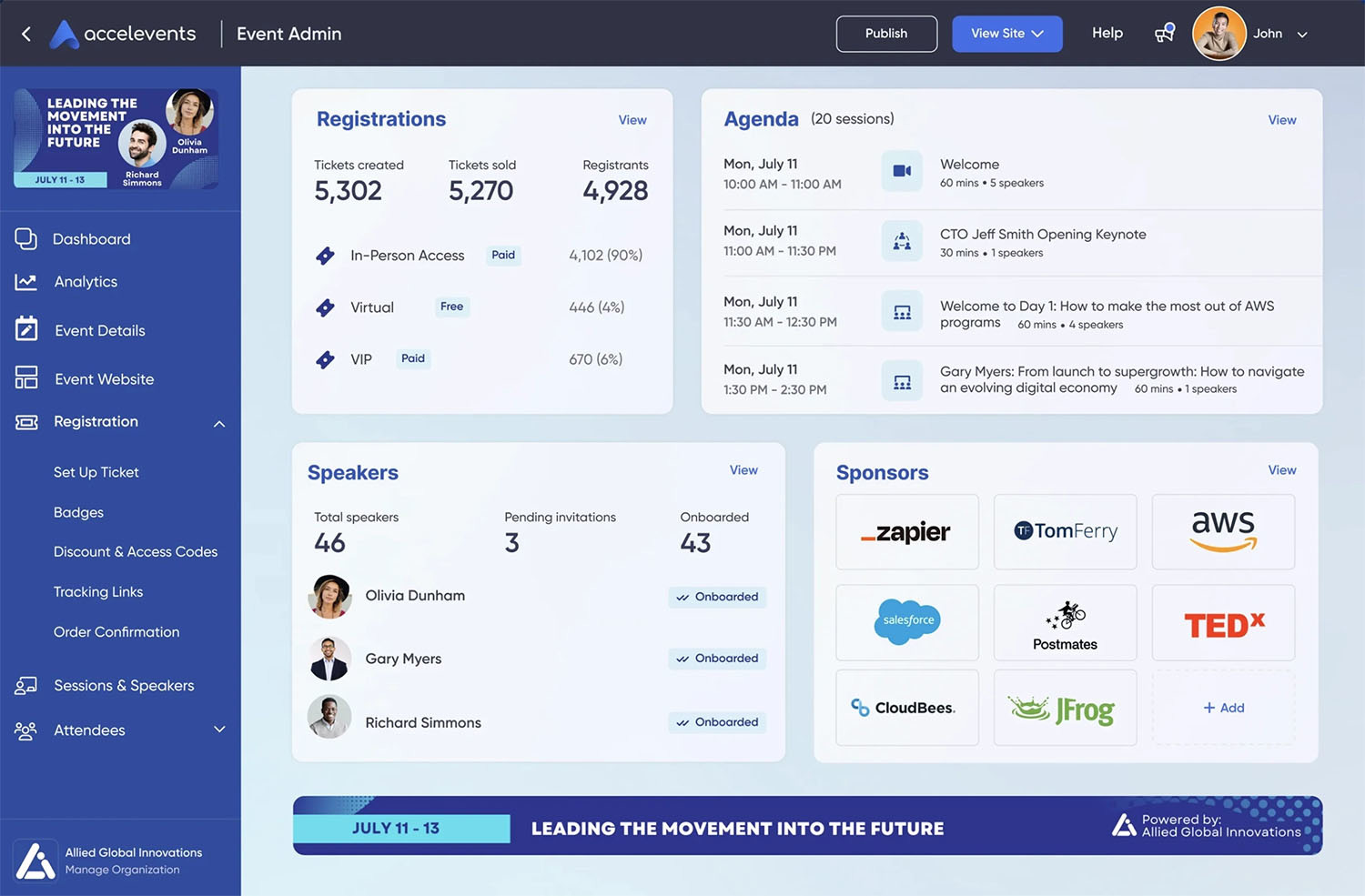
Accelevents has been developed to meet the unique needs of non-profit and for-profit organizations
This event management solution has all the features needed for a well-run conference or convention: attendee registration, ticketing, payment processing and badge printing, event check-in, website and agenda builder, lead capture, event marketing and a meeting scheduler. Accelevents also leverages gamification to stoke attendee engagement.
#13: Aventri
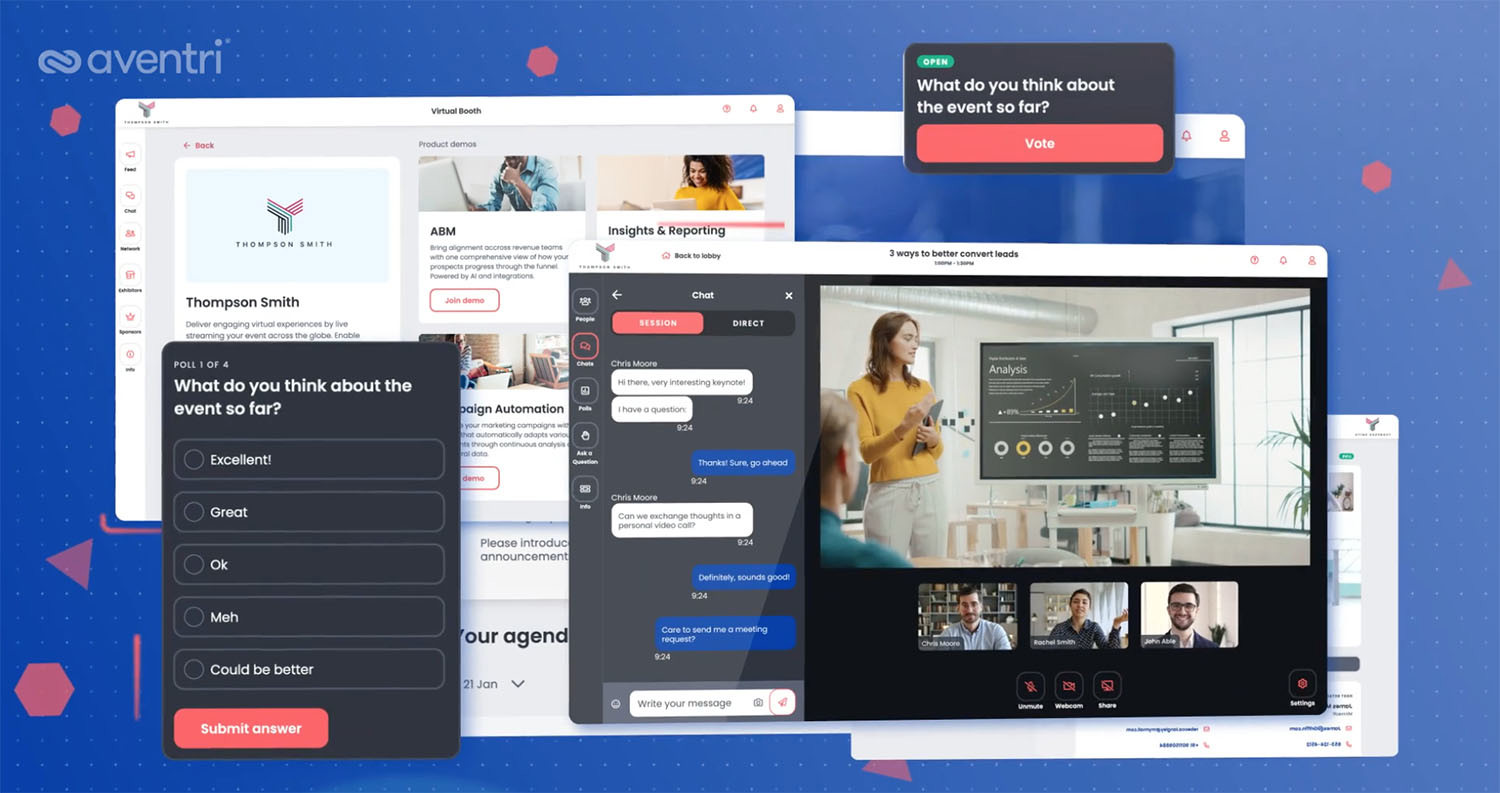
Aventri, which, along with MeetingPlay and eventcore, rebranded as Stova in 2022.
Stova has designed an event technology ecosystem for major corporations that want to tap into the potential of data for the strategic management of events and meetings. This enterprise-level event management platform is highly sophisticated for both online and in-person events. Stova supplies managed services to add resources to existing event planning teams.
#14: EventMobi
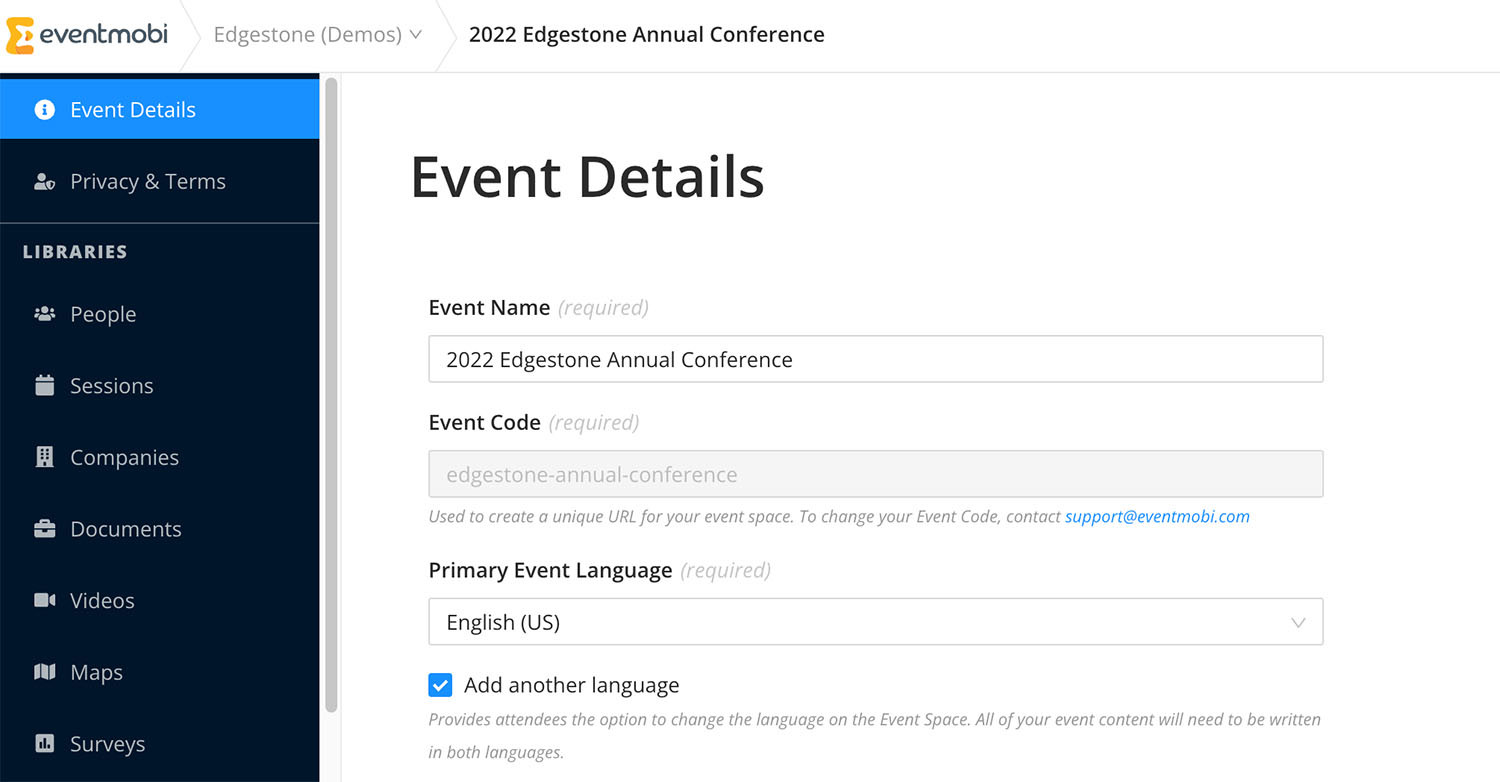
EventMobi is an event management platform designed to enhance attendee experiences through mobile-friendly tools.
It provides event organizers with everything from customizable event apps and real-time updates to networking features and interactive sessions. EventMobi’s responsive design is ideal for on-site and virtual event registration, badge printing and lead capture.
#15: Airmeet
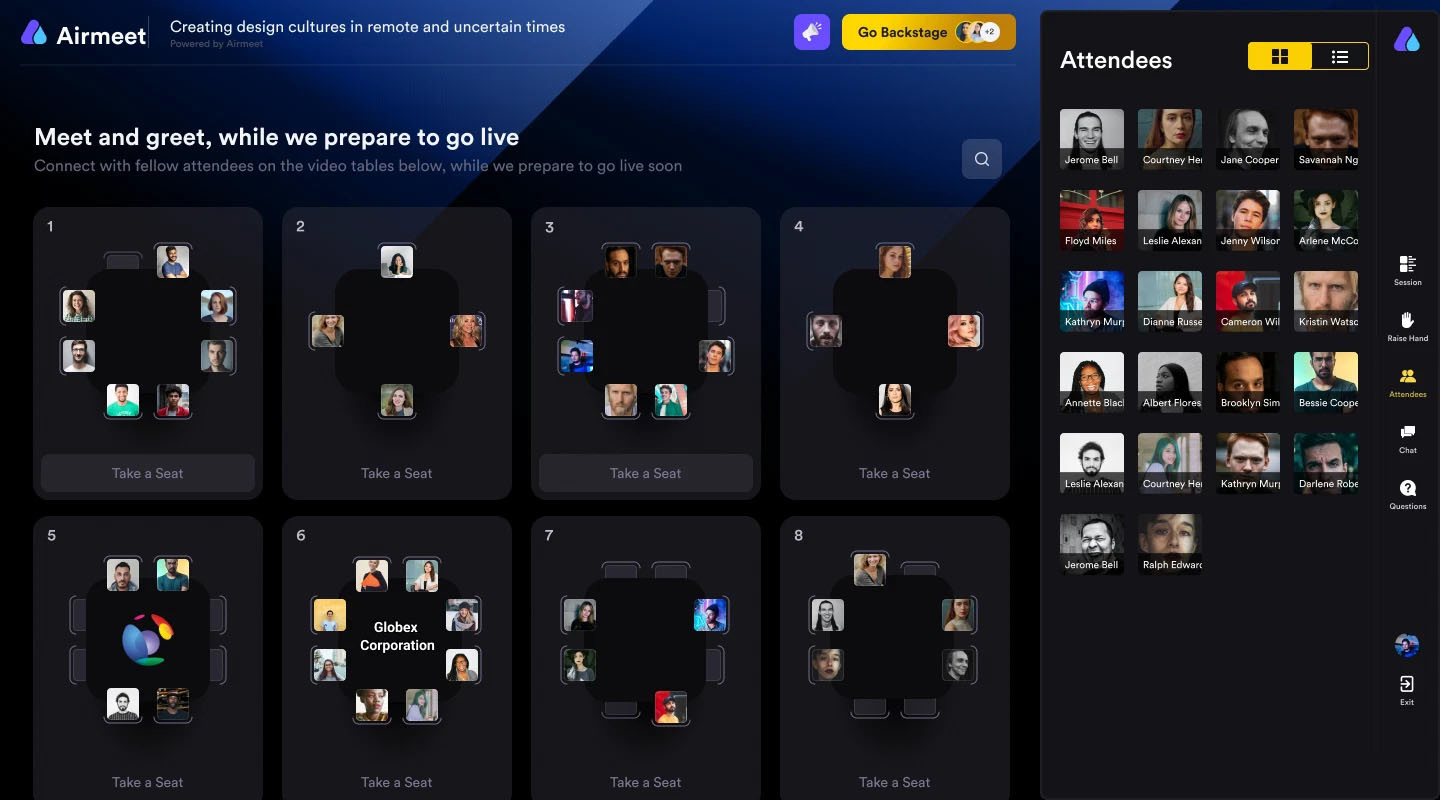
Airmeet is perfect for virtual events and webinars where networking takes center stage. It is recognized by it's dark blue branding.
Its online round tables and breakout rooms facilitate meaningful connections among attendees, replicating the in-person networking experiences online. If you often host townhall meetings, community meetups, or company workshops and training sessions, you may want to consider Airmeet
#16: RegFox
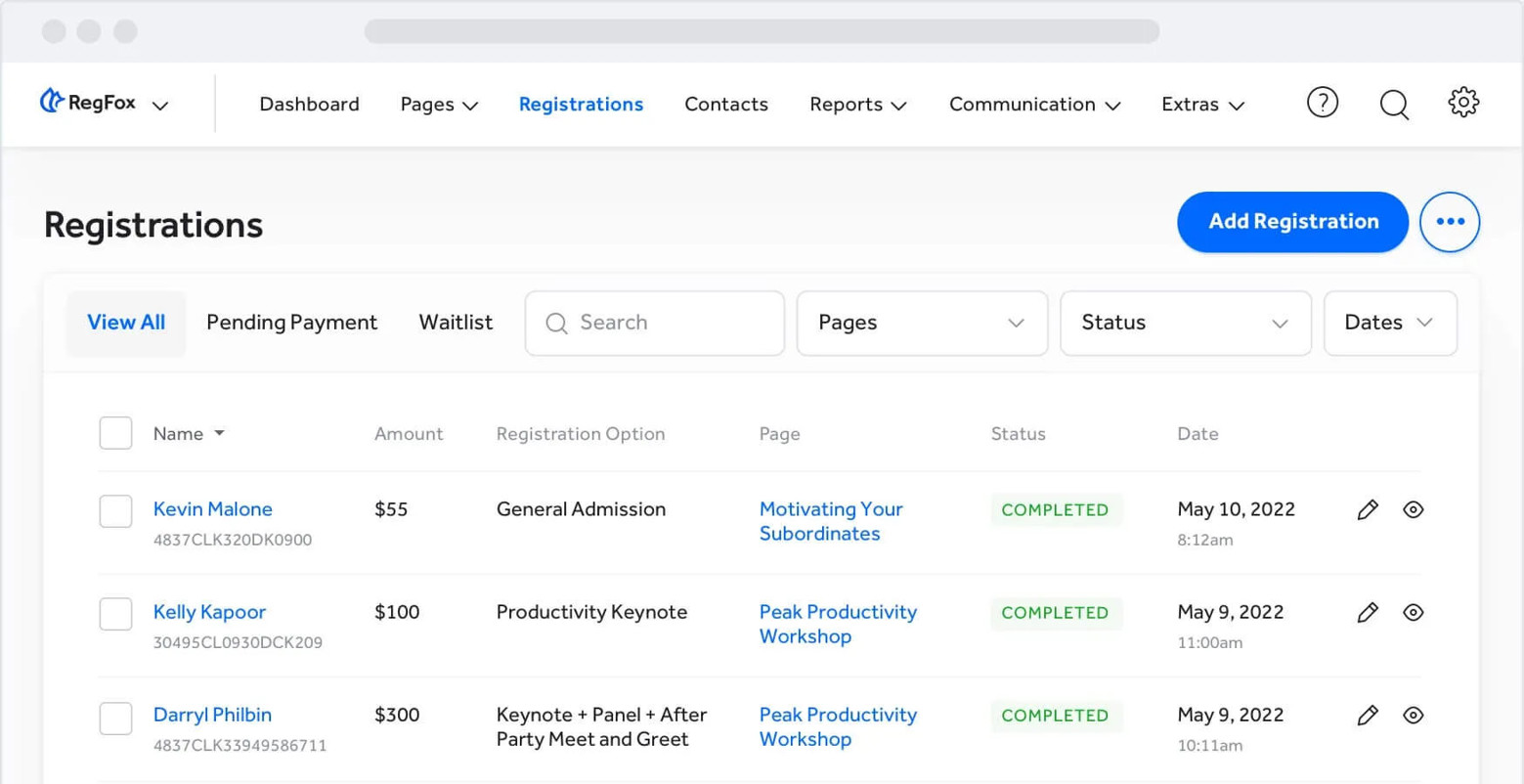
RegFox provides a cost-effective product mostly for event registrations.
If you are on an extremely tight budget and need only features tied to creating a very simple event website, offering quick check-ins, and printing basic badges, RegFox may be the event management software you need. It also enables users to manage attendee and vendor contacts, send out email drip campaigns, and handle transactions.
#17: Zoho Backstage
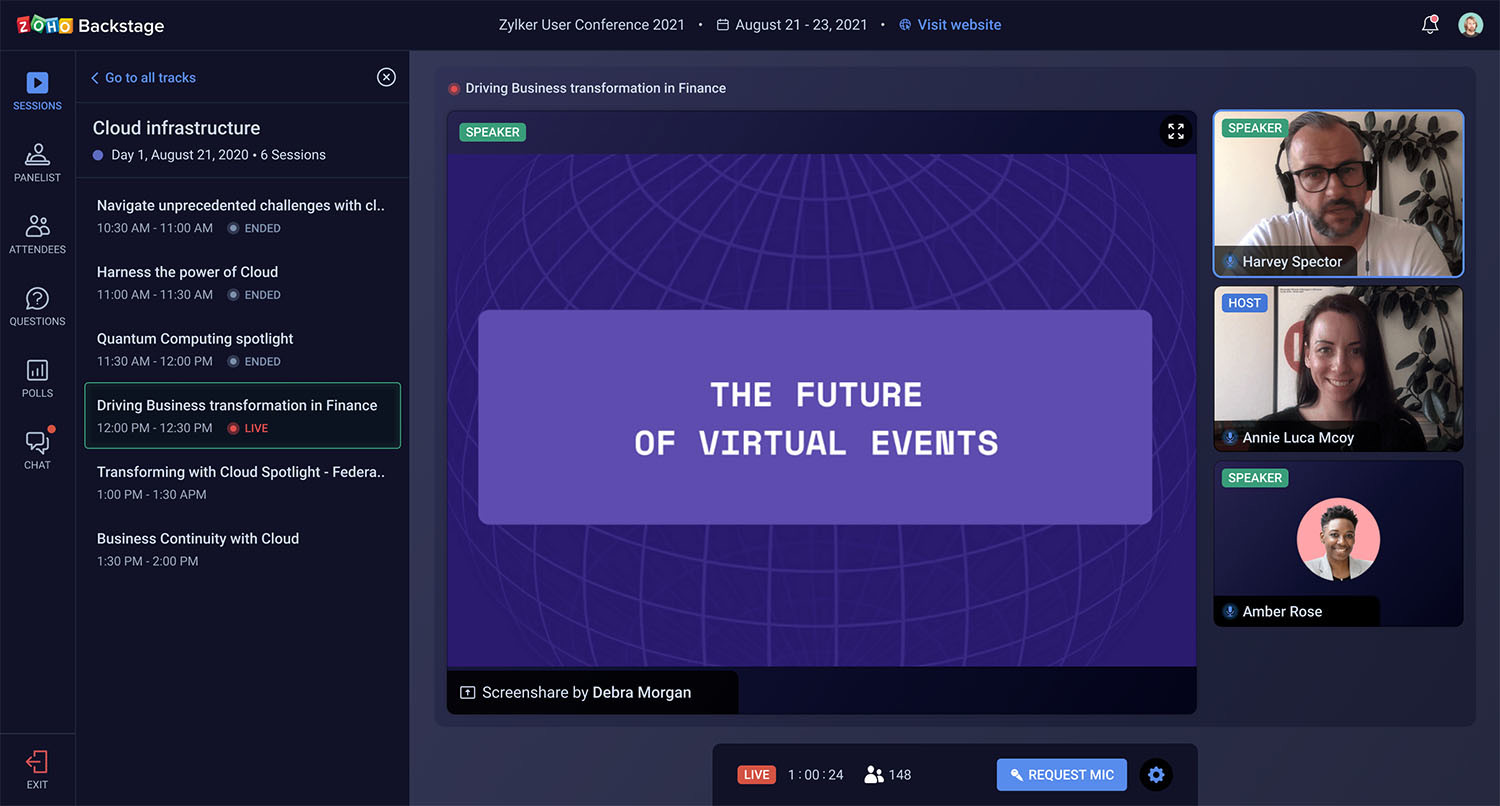
Zoho Backstage integrates seamlessly with other Zoho products and third-party systems, creating a unified ecosystem for event planning—especially if you already use Zoho’s suite of applications.
It is a fully customizable event management platform with a broad spectrum of ticketing, omni-channel marketing and audience engagement functionalities. Zoho Backstage includes AI-driven networking and gamification as well as tools to drive exhibitor traffic at tradeshows.
#18: PheedLoop
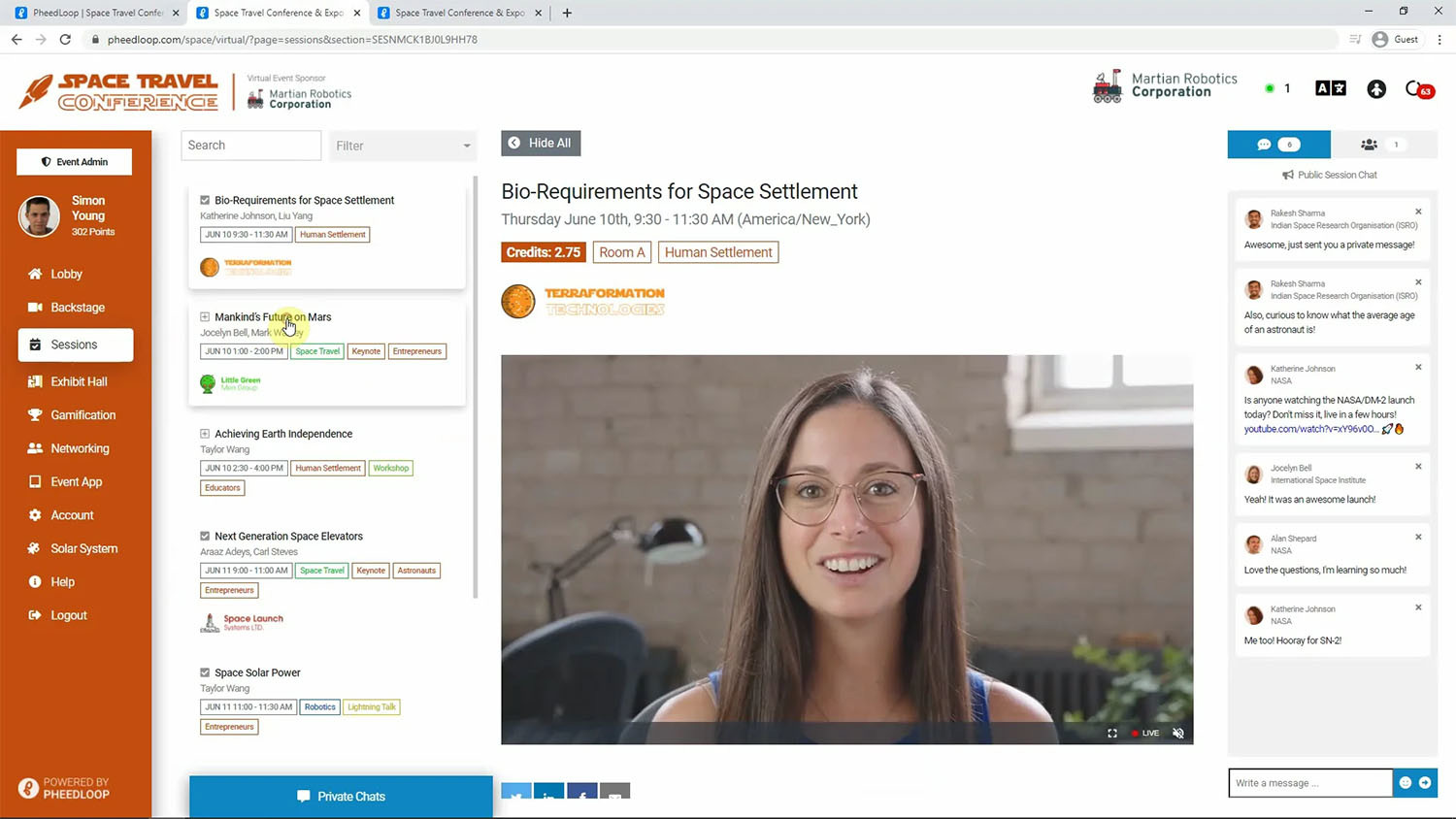
If you’re struggling with overseeing exhibitors and sponsors, take a look at PheedLoop, which allows event planners to maintain clear communication and deliver value to stakeholders.
PheedLoop is equipped with all the standard features many event management software solutions have: event website creation, participant registration, gamification, trade show floor planning, conference and meeting seating plans, badge production, attendee check-ins and scheduling, and staffing coordination.
#19: Odoo Events
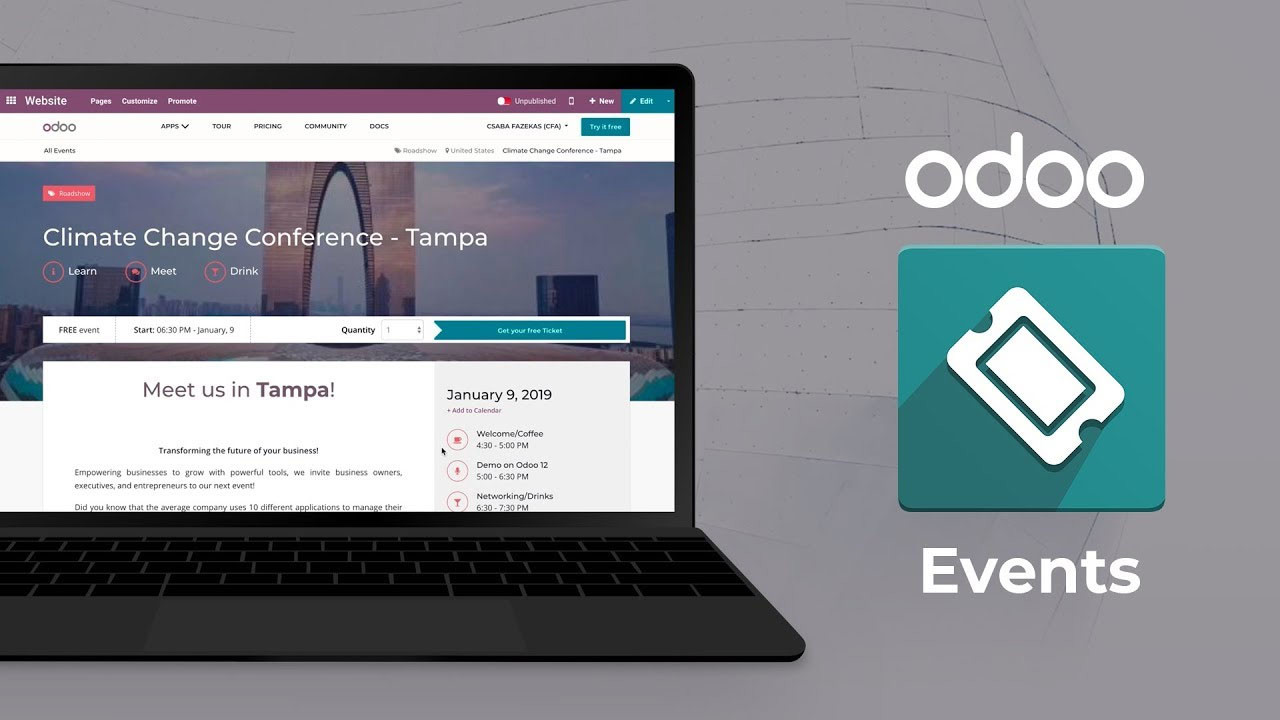
As a company, Odoo specializes in building partially open-sourced apps for many different business processes, such as finance, sales and marketing, supply chain management, human resources, etc. In fact, you can select from over 40,000 apps. Some are free and open source, others are paid and proprietary.
Its event app is an event management software that gives event organizers the opportunity to coordinate event content, calendars and speakers, sell tickets and sponsorships online, promote different types of events, and send emails to contacts.
#20: Planning Pod
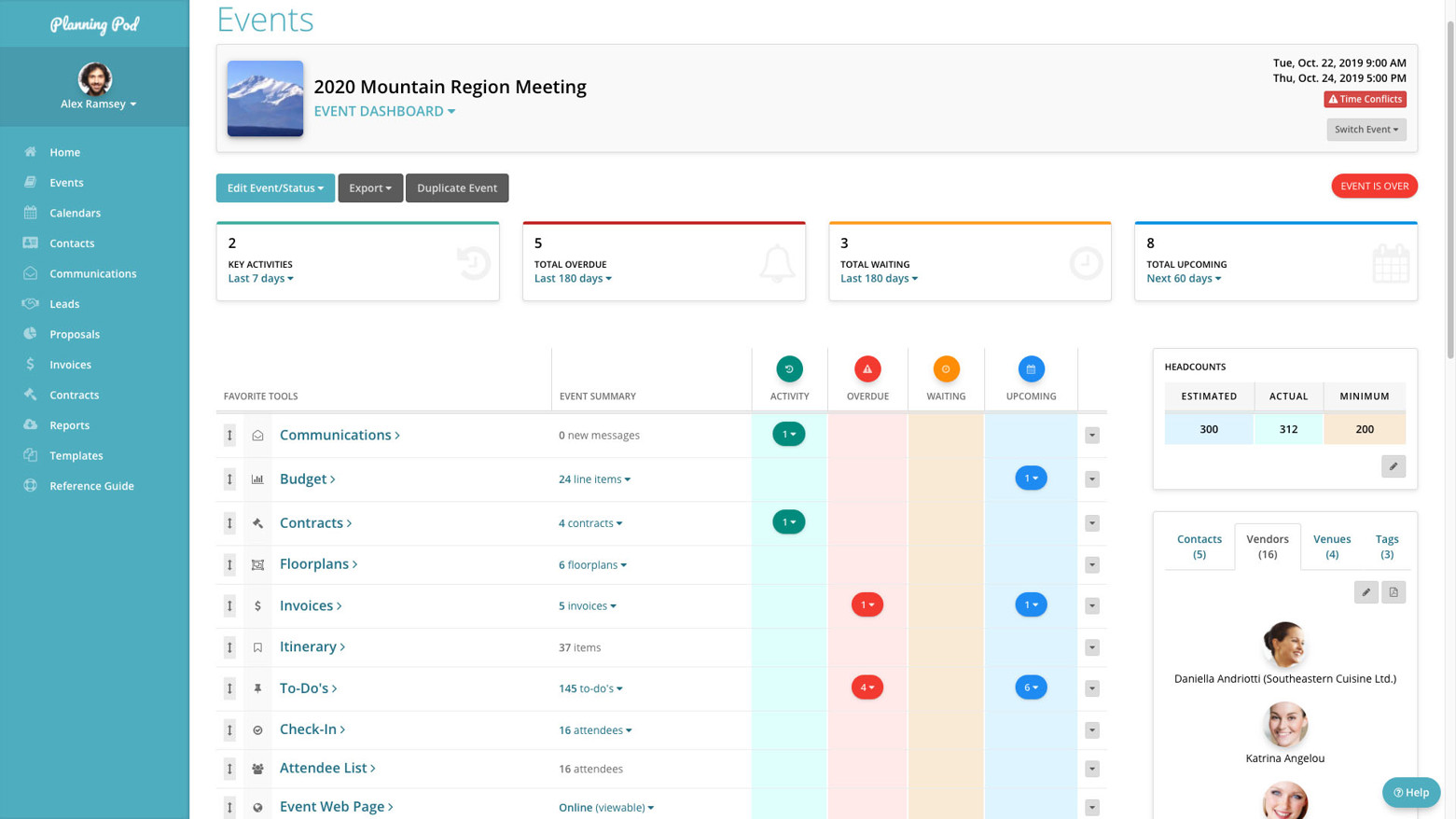
Planning Pod is an event management platform that covers every aspect of event planning, like many other solutions, from budgeting and scheduling to vendor management.
It provides users with several tools that busy and experienced event planners need: budgets, checklists, task management, worksheets, itineraries and schedules, file sharing, etc. Other add-on modules, including Planning Pod’s venue management and floorplan design, are also available. Planning Pod is well-suited for power users looking to fine-tune every detail of their events.
Try the platform that's purpose built for academic events.
Choosing the Right Software For Your Event
Selecting the right event management software can significantly impact the success of your event. With so many options available, it’s essential to follow a clear and systematic approach to ensure you make the best choice for your unique needs.
Here are some important steps to guide you in finding the best conference management software.
Step 1 - Define your event goals
Start by identifying what type of event you want to organize. Are you hosting a small, focused academic conference or a large-scale hybrid trade show? Consider factors such as the size of your audience and the event format (in-person, virtual, or hybrid).
Next: how will you measure the success of your event? Think about your KPIs, such as increased ticket sales, X% of glowing post-event surveys, $X in sponsorships, or any other goal.
By understanding what you are trying to achieve, you’ll be better equipped to choose software that aligns with your priorities.
Step 2 - List essential features
Identify the features you need, as this list will simplify narrowing down your vendor options. Here are some ideas to get you started:
- Attendee registration and attendee management
- Abstract submissions and peer-review
- Event ticketing
- Attendee check-in
- Payment processing by credit card
- Event marketing campaigns with templates
- Social media and email marketing
- CRM integration and other integrations
- Live polls
- Management of floor plans
- QR codes and user notifications
- Real-time reporting and analytics
- Interactive messaging and chat
- User-friendly interfaces
- Vendor customer support
- Type of pricing plans
Don’t hesitate to book a demo! There is nothing like seeing an event management platform in action!
Step 3 - Set a budget
Establish a realistic budget for your event management software. Include not only the upfront costs but also potential additional fees for extra features, integrations, transaction fees or customer support.
Keep in mind that, although you have to keep your budget in check, don’t skimp on features that can help you and your team be more productive. Consider the potential return on investment—an effective platform can save time, reduce manual tasks, and enhance attendee satisfaction, which often justifies the expense.
While it may be tempting to choose the cheapest solution, cutting costs can sometimes mean sacrificing essential features or support, which can ultimately affect event success.
Step 4 - Research and shortlist event management platforms
Conduct thorough research on available software options. Browse vendor websites, read user reviews, and study case studies to learn how the software has been used in similar events. Again, schedule demos with the vendors you are interested in to explore the software in more detail and see if there is a good fit with the team that backs it up.
Pay attention to customer success stories within your industry, as they can provide valuable insights into how the software might perform for your specific use case. For example, if you are a professor or researcher and frequently host academic conferences, you may want to choose an academic event management platform that is truly adapted to your types of events.
Step 5 - Test the event management software’s usability
Many event management software companies offer free trials or demo sessions. Take advantage of these to evaluate how intuitive and user-friendly the software is.
Can you easily navigate the interface? Are the tools straightforward for your team to use without extensive onboarding and training? Testing usability will give you a clear sense of how the platform fits into your current workflows—and if it will burden or alleviate your team members regarding low-impact work.
Step 6 - Evaluate vendor support and training
Reliable customer support can be a lifesaver, especially during critical event moments.
Ask event management platform providers about their support options, such as live chat, email support, or a dedicated account manager. Find out about the extent of onboarding and training resources they provide, such as tutorials or webinars, to help your team get up to speed quickly.
One caveat to pay attention to: some software vendors offer basic support but charge for premium services like expedited responses, advanced troubleshooting, or dedicated assistance. Make sure you understand the full scope of their support policies to avoid unexpected costs at the most inopportune moments (during your event!).
Step 7 - Ensure scalability and integrations
Choose software that can grow as your organization evolves.
If you plan to expand your events in the future, ensure the platform can handle larger audiences or more complex features.
Ask about each vendor’s compatibility with other tools you already use, such as CRM systems, email marketing platforms, or payment gateways. Seamless integrations can streamline your processes and reduce redundancies, ultimately saving you a lot of time and energy.
Step 8 - Ask any other key questions before committing
Before making a final decision, ask event software suppliers critical questions to address any uncertainties you may have. For example, request information about data security measures, customization options, and the provider’s level of responsiveness.
For instance, does the platform comply with relevant data protection regulations? Can it be adjusted to reflect your branding? What happens if you need to scale up quickly?
Getting answers to these questions will ensure you select a platform that aligns with both your immediate event objectives and long-term growth strategies.
Your Best Conference Management Software Questions - Answered
What is a conference management tool?
A conference management tool is a digital platform developed to streamline the planning, execution, and follow-up of events.
It combines features like attendee registration, abstract submissions and speaker management, scheduling, communication and mobile app into one centralized system, helping organizers save time, reduce manual effort, and deliver a stellar event experience.
Whether you're hosting an academic seminar, a corporate summit, or a trade show, an event management solution is invaluable for managing the many moving parts of an event in the most efficient way possible.
What features should an event planning software have?
It all depends on the type of events you host and the industry your organization caters to. The best place to start is to map out your current and ideal event planning workflows. Where are you losing the most time? What tasks would you like to automate or simplify?
If you organize a lot of academic conferences, for example, your event planning software should include features specifically designed for symposiums or conventions with multiple speakers, breakout workshops, poster sessions, etc.
These features could include an event website builder to showcase conference details and updates, abstract management tools to handle submissions easily, and a conference program builder to design and share schedules.
Registration and payment management tools facilitate attendee sign-ups and fee collection, while peer review coordination ensures a smooth-running evaluation process for submissions.
Finally, for hybrid or virtual events, features like virtual poster session, livestreaming, matchmaking and engagement tools are critical.
How do I choose the right conference management software for my event?
To choose the right conference management software, start by considering the specific pain points you’ve encountered in past events. Whether it’s managing last-minute schedule changes, coordinating abstract submissions, or engaging attendees, identifying your biggest hurdles will help you focus on tools that directly address those issues.
Next, prioritize event management platforms that offer flexibility and adaptability. Look for software that can handle diverse event types, from academic conferences to hybrid gatherings, without locking you into rigid workflows.
Pay attention to user feedback and industry-specific recommendations, as these often highlight hidden strengths or weaknesses that generic reviews might miss.
Finally, think about how the software fits into your team’s planning process. A tool that aligns with your team's working style—whether collaborative or hierarchical—will be easier to adopt and more effective in practice.
What are the four C’s of event management?
The four C’s of event management represent the key pillars that guide successful event planning and execution:
Concept: Every great event begins with a strong foundation. Define the purpose, goals, and audience of your event to create a clear vision that drives all your decisions.
Coordination: Organizing an event involves many details. This step focuses on orchestrating logistics, managing teams, and ensuring all aspects of a conference or convention—like vendors, schedules, and resources—align perfectly.
Control: During the event, maintaining control is a major imperative. Monitor operations in real time, troubleshoot issues as they arise, and ensure everything stays on schedule and within budget.
Culmination: The event itself is the pinnacle of your efforts, but it doesn’t stop there. After the event, evaluate the results, gather feedback, and reflect on what worked and what can be improved for next time.
What are the key aspects of event marketing?
Want to organize an unforgettable event? Successful event planning involves a blend of strategy, creativity, and impeccable execution to attract attendees and ensure the event achieves its goals. These are the key aspects you should focus on:
Understand your audience personas: Define who you want to reach and what motivates them. Knowing your audience’s needs and interests helps shape a marketing plan that speaks directly to them.
Develop compelling key messaging: Highlight what makes your event stand out. Whether it’s expert speakers, exclusive content, or networking opportunities, emphasize the benefits your audience will gain from attending your event.
Create a cohesive brand: Your event should reflect a strong, unified identity across all materials, from promotional graphics to email campaigns. Consistency helps establish credibility and build recognition.
Develop multi-channel marketing initiatives: Use a mix of digital and traditional platforms to promote your event. Social media, email marketing, email marketing, and press releases all play a role in reaching your target audiences.
Drive engagement throughout the event journey: Encourage your audience to interact with your event before it starts. Share teasers, host giveaways, or create countdown campaigns to generate excitement and keep the event top-of-mind. Don’t underestimate the power of post-event communication either, with strategies like sharing event highlights, sending personalized thank-you messages, and collecting attendee feedback to maintain engagement and build lasting connections.
Measure your event results: Track key metrics, such as registration numbers, engagement rates, and conversions, to assess the impact of your marketing efforts. Use these insights to refine future event strategies and find ways to mitigate the issues you previously encountered.


